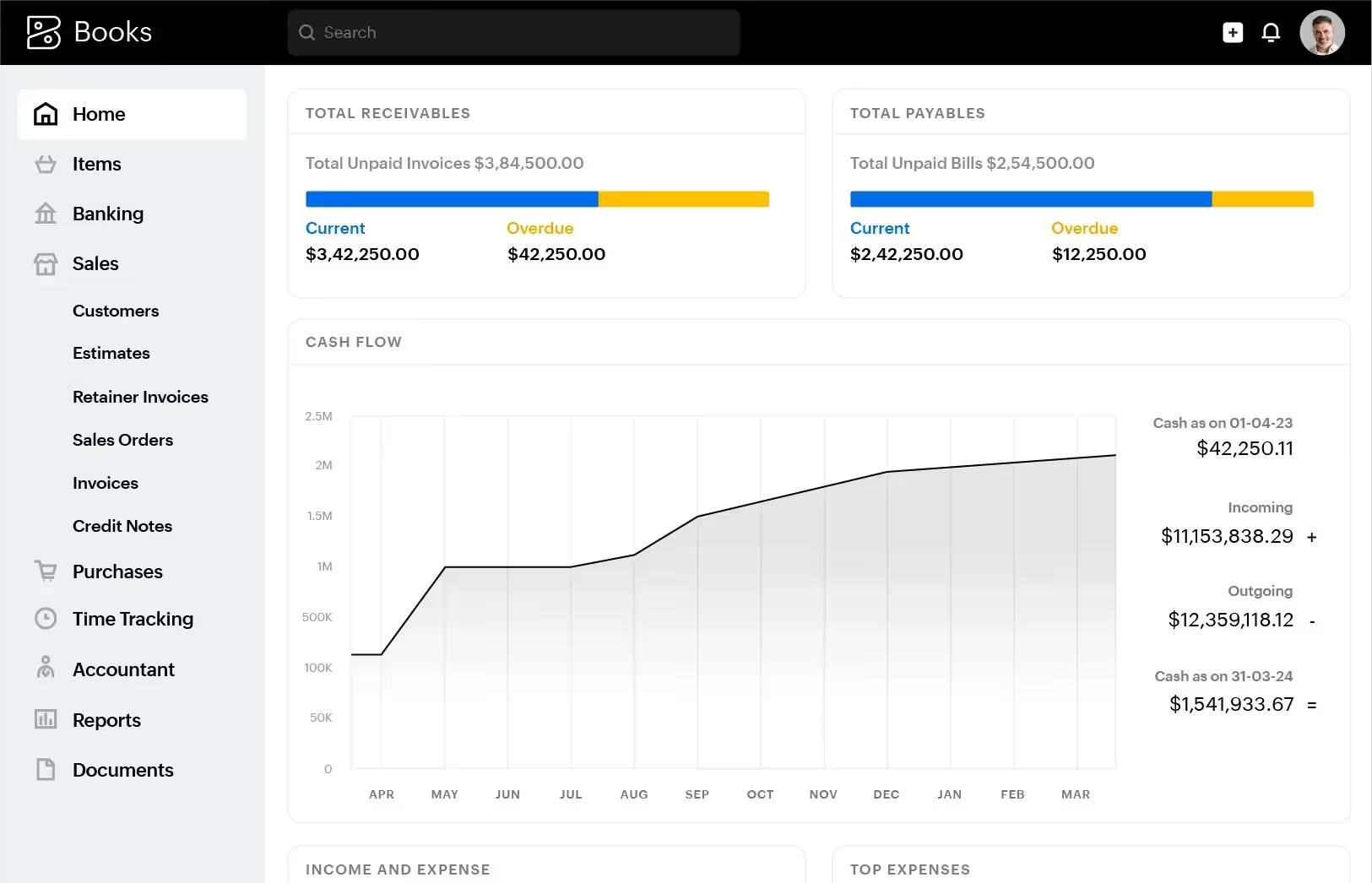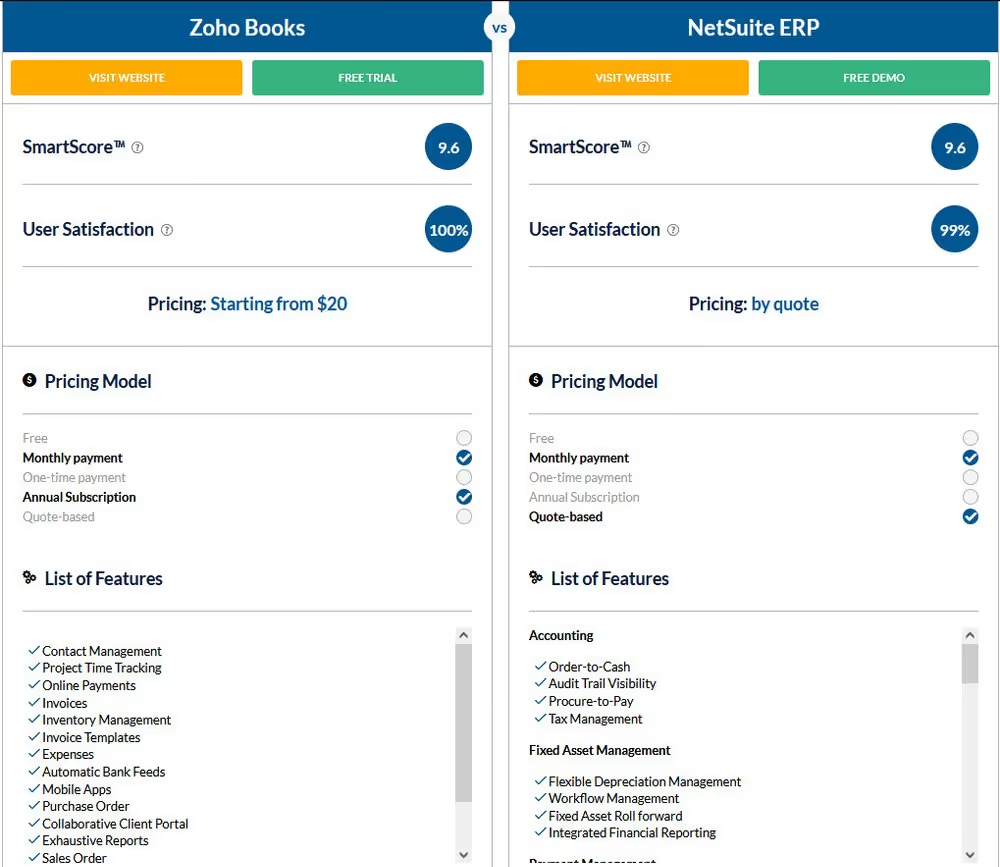There is no one-size-fits-all accounting system. However, that doesn’t mean choosing the right system for your business has to be difficult.

We broke down the pros and cons of Oracle’s NetSuite ERP versus Zoho’s Finance suite. It all comes down to just three categories: features, ease-of-use, and cost.
1) Features
Both systems are rich in features, including everything you need to manage core accounting functions: sales orders and invoicing, purchase orders and bills, automated bank reconciliation, integration with payment processors, tax management, and all the rest.
But here NetSuite has the edge. It was designed to be a full ERP, or Enterprise Resource Planning tool, and as such includes more detailed functions such as flexible asset depreciation and more robust supply chain management.
While NetSuite is designed to be an all-in-one solution, Zoho has made their projects modular. Zoho Books is just for accounting, but it integrates natively with the rest of the Zoho Finance suite, which includes Inventory, Subscriptions, and online checkout. Through the Zoho One product, businesses can also leverage seamless integration with Zoho CRM, Zoho Analytics (their flexible business intelligence and reporting tool), Zoho Payroll, and many other apps, including personnel management and recruitment, project management, email, messaging, form builders, and more.
2) Ease-of-Use
Customers of both platforms report they are easier to use than many competitors, but here Zoho has the edge. NetSuite’s diverse array of functions becomes something of a liability when married to a less-then-ideal user interface that many of our clients report is difficult to navigate. Many of the options are not intuitive, which can be frustrating, especially when on a deadline.
Zoho Books, on the other hand, has a clean, simple interface with a much more intuitive design.

3) Cost
Of course, a full-scale ERP comes with enterprise pricing, which is why NetSuite won’t list their prices online. You have to call for a quote, which varies based on several factors. However, just for illustration, the last client we migrated off NetSuite lowered their software subscription costs by $45,000 a year, from $50,000 on NetSuite to one-tenth that on Zoho.
Furthermore, Zoho’s pricing is straightforward. There are three pricing tiers, starting at free for businesses with less than $50,000 in revenue. Zoho also offers a free 14-day trial so you can evaluate whether it truly is right for your business.
Conclusion
Large businesses with complex supply chains, dozens of warehouse locations, or who trade overseas might benefit from NetSuite’s more complex set of features. Everyone else is likely to find Zoho Books to be both easier to use and significantly more affordable, especially in combination with any of the dozens of other Zoho apps.
For a more graphical approach, see this side-by-side comparison by the good folks at FinancesOnline.

…more on their website.
- zoho books
- financial
- bookkeeping
- accounting